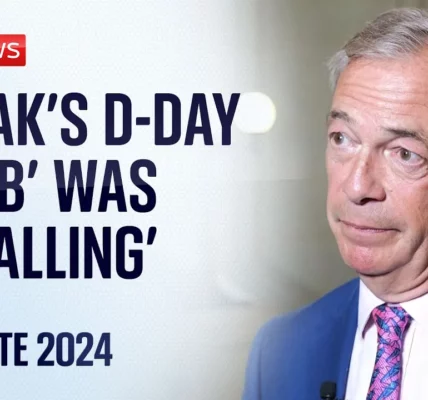Bridget Phillipson on Labour’s Economic Plans and Election Strategies

In this detailed discussion, Shadow Education Secretary Bridget Phillipson presents the Labour Party’s vision for the economy, addressing public investment strategies, upcoming debates, and key issues facing the nation as the general election approaches.
Introduction
Bridget Phillipson, the Shadow Education Secretary for the Labour Party, recently shared insights on the party’s economic strategy and the importance of public investment in achieving its goals. Amidst ongoing debates and election preparations, Phillipson emphasized the need for transparency in financial matters and the role of the private sector in fostering economic growth. This article delves into the key points raised by Phillipson, outlining Labour’s approach to decarbonization, growth, and education policy as the party aims to reshape the future of the UK.
The Cost of Decarbonization
Darren Jones, the Chief Secretary to the Treasury, recently highlighted that the target of decarbonizing the UK economy could cost hundreds of billions. This statement has sparked discussions about Labour’s financial commitments.
Labour’s Financial Transparency
In response, Phillipson reassured the public that all aspects of Labour’s manifesto are fully funded and costed. She emphasized the party’s strategy of leveraging public investment to stimulate private investment, asserting that:
- For every pound of public money spent, the goal is to generate three pounds in private sector investment.
- This approach is intended to harness untapped potential in business investment to stimulate economic growth.
Growth as a Central Focus
Phillipson reiterated that economic growth is Labour’s top priority, a sentiment echoed by many party members. The manifesto outlines comprehensive plans aimed at economic revitalization.
The Importance of Economic Growth
She stated that if the UK’s economy had grown at a rate comparable to similar advanced economies, the public would not be facing increasing tax burdens. Key points regarding Labour’s growth strategy include:
- Creating well-paid, highly skilled jobs across the country.
- Ensuring the UK remains at the forefront of new technologies.
- Working in partnership with businesses to drive growth.
Election Debates and Public Engagement
As the election approaches, Phillipson expressed confidence in Labour’s platform and the importance of engaging with voters. She discussed the upcoming debates and the perception of the Labour Party’s message.
Labour’s Preparedness for Debates
Addressing concerns about Keir Starmer’s debate performances, Phillipson noted that he thrives in public engagements and looks forward to setting out Labour’s vision clearly. She highlighted:
- Starmer’s ability to connect with the public and respond to challenges.
- The party’s commitment to presenting a positive outlook compared to the Conservative Party’s perceived negativity.
Addressing Controversies
In light of recent controversies, including a betting scandal involving Labour candidates, Phillipson emphasized the party’s proactive measures to address such issues. She clarified the party’s stance on gambling and transparency in political betting.
Guidance on Sensitive Issues
Regarding the teaching of gender identity in schools, Phillipson confirmed the need for comprehensive guidance that prioritizes children’s well-being. Key points include:
- The necessity for clear direction for teachers and school leaders.
- A commitment to ensuring that discussions remain respectful and sensitive to children’s experiences.
Conclusion
Bridget Phillipson’s insights shed light on Labour’s strategic approach to economic growth, public investment, and education policy as the party prepares for the upcoming election. With a clear plan and a commitment to transparency, Labour aims to connect with voters and present a viable alternative to the current government. As the election date approaches, it is crucial for citizens to engage with the political process and make informed decisions at the polls. For further insights into Labour’s plans and policies, visit our related articles on UK politics and economic strategies.
“`




